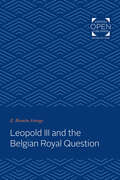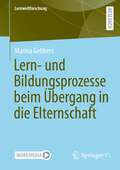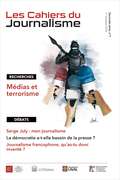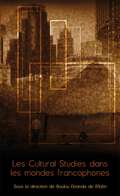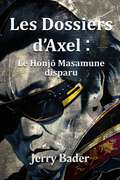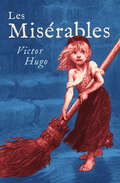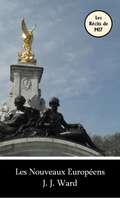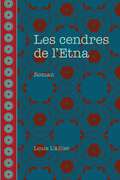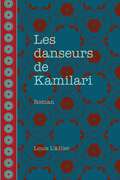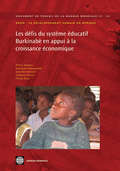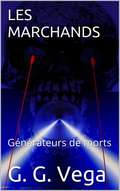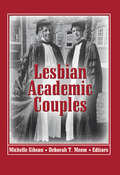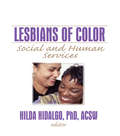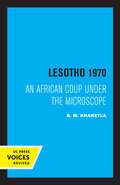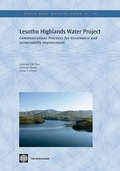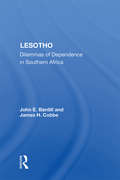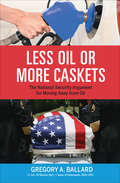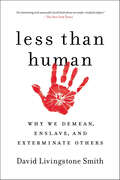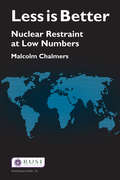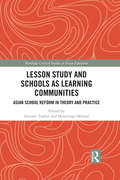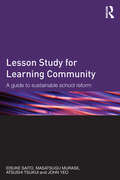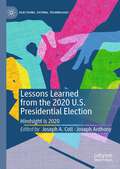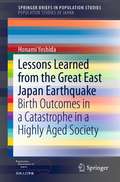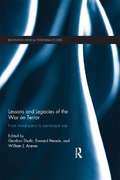- Table View
- List View
Leopold III and the Belgian Royal Question
by E. Ramón ArangoOriginally published in 1963. Between 1945 and 1951, Belgium faced a crisis in political leadership when its ruling monarch, King Leopold III, was accused of violating the Belgian Constitution during World War II. The "question" at hand refers to the uncertainty over whether King Leopold III could return to Belgium as king. Leopold III and the Belgian Royal Question documents the history of this political crisis, culminating with the abdication of King Leopold and the assumption of the crown by Baudouin, Leopold's son.
Lern- und Bildungsprozesse beim Übergang in die Elternschaft (Lernweltforschung #45)
by Marina GebbersDieses Buch beschäftigt sich mit der Frage, wie die Einzelnen den Übergang in die Elternschaft durchlaufen. Insbesondere beim ersten Kind birgt der Übergang diverse krisenhaft besetzte Veränderungen, zu denen sich die Eltern irgendwie verhalten müssen. Auf diese unterschiedlichen Lernherausforderungen wird mit Lern- und Bildungsprozessen reagiert, mit deren Themenkomplex sich dieses Buch beschäftigt. Interessant ist dabei, wie die Personen sich in die neue Rolle als Eltern hineinfinden und wie die gesamte (Lern-)Entwicklung beziehungswiese Lerngeschichte der Person in ihrer Spezifik, aber auch in ihrer Gesamtheit abläuft. Dafür werden narrativ-biographische Interviews mit Eltern, deren erstes Kind zum Zeitpunkt des Interviews zwei Jahre alt ist, analysiert. Dabei wird mit einem biographieanalytischen Verfahren gearbeitet und ein Vorschlag zur theoretischen Weiterentwicklung und zur Veralltäglichung von Lern- und Bildungsprozessen entwickelt.
Les Cahiers du Journalisme, V.2, NO3: La santé mentale dans les médias (Les Cahiers du Journalisme #1)
by Bertrand Labasse et Thierry WatineLa nouvelle formule de cette revue internationale de référence ajoute désormais une partie éditoriale, consacrée aux débats et analyses sur le journalisme, à ses traditionnels dossiers et articles scientifiques évalués par les pairs. Fondés il y a plus de vingt ans à l'instigation de Patrick Pépin et de Pierre Bourdieu, qui en signait le premier article, Les Cahiers du journalisme prennent un nouveau départ. Cette seconde série associe désormais la perspective d'une revue de réflexion ouverte à des analyses et points de vue variés (Les Cahiers du journalisme - Débats), à celle d'une revue de recherche internationale publiant des dossiers, articles et notes soumis à évaluation scientifique externe (Les Cahiers du journalisme - Recherches). Elle prolonge ainsi le rôle majeur qu'elle a joué dans le développement des travaux et échanges sur le journalisme francophone, en favorisant un dialogue ouvert entre les professionnels et les chercheurs sans pour autant méconnaître les spécificités de leurs approches respectives. Publié en français
Les Cultural Studies dans les mondes francophones (Études culturelles, africaines et diasporiques)
by de B'béri, Boulou EbandaDepuis trois décennies le monde anglo-saxon a considéré sérieusement les Cultural Studies comme une analyse des pratiques quotidiennes et de la production de sens. Mais la production analytique en français dans cette discipline est restée presque absente. Les mondes francophones ont déjà vécu plusieurs événements qui auraient intéressé les Cultural Studies au XXIe siècle : les manifestations sociales de l’hiver 2006 et de l’automne 2007 en France, les mouvements migratoires d’Africains vers l’Europe et le débat sur « les accommodements raisonnables » au Québec entre autres. Pour tous ces événements, nous avions entendu s’élever plusieurs voix qui offraient des articulations généralistes de différentiation de nous à l’autre et des idiomes comme « ces gens-là », « les enfants issus d’immigration », « nous ne voulons pas accueillir la misère du monde » et bien d’autres. Nous n’avions pas entendu s’élever des perspectives provenant des Cultural Studies dans leur compréhension particulière d’événements politiques, ni en France, ni en Belgique, ni en Suisse, encore moins au Québec. Ces perspectives nous invitent à tenir compte des rapports entre discours et représentations, de placer les contextes politiques des pratiques quotidiennes comme prémisses de nos analyses, d’ouvrir les identités aux pratiques de production de sens et de revoir les groupes et formations identitaires. Cet ouvrage a pour but de souligner les repères utiles des Cultural Studies pour mieux comprendre les milieux politiques et culturels de la francophonie au XXIe siècle. Publié en français
Les Dossiers d'Axel : le Honjō Masamune disparu
by Jerry BaderLe détective Axel Webb est engagé par un agent du Naichō japonais sur la recommandation de son ami Yakuza, Hibiki Sato, pour retrouver le katana Honjō Masamune qui a été vu pour la dernière fois en 1945 quand il a été emmené de la station de police de Mejiro par un sergent de l’armée américaine. Le détective Axel Webb est engagé par un agent du Naichō japonais sur la recommandation de son ami Yakuza, Hibiki Sato, pour retrouver le katana Honjō Masamune qui a été vu pour la dernière fois en 1945 quand il a été emmené de la station de police de Mejiro par un sergent de l’armée américaine. Le nom du sergent a été transcrit en japonais par la police. Des années plus tard, il a été retranscrit en anglais. Malheureusement, il n’y a aucune information sur quiconque de ce nom ayant servi au Japon durant l’occupation après-guerre. Le katana n’est pas une simple épée ; il est considéré comme l’épée la plus parfaite jamais forgée. C’est aussi un symbole du shogunat Tokugawa. Le gouvernement japonais ne veut pas que le trésor national perdu et ancien symbole culturel tombe entre les mains du nouveau parti politique néofasciste récemment formé déterminé à gagner du pouvoir et à ramener le pays à ses politiques de l’avant-guerre. Le nouveau parti politique, le Meiyo Aru Dōmei, est une alliance de quatorze des groupes de droite les plus extrémistes, incluant le politicien Junichi Kato, le chef de l’Azuna-tō, le Yakuza Fukashi Nakamura, Kumichō du Meiyo-kai, et Daizō Hokama, le chef de l’alliance, le Meiyo Aru Dōmei. Hokama veut utiliser le katana Honjō Masamune disparu comme un symbole de ralliement que ses partisans et le peuple peuvent suivre. Un podcaster de Toronto s’intéresse à l’épée disparue. Durant ses recherches, il résout le nom correct du sergent qui a pris l’épée à la station de police. Il annonce qu’il révèlera le nom du soldat dans son prochain podcast,
Les Misérables: Part First: Fantine, Volume 1 (Les\mis�rables Ser. #Vol. 1)
by Victor HugoThe novel that inspired the beloved Broadway musical: Jean Valjean&’s immortal adventure among the dispossessed of nineteenth-century Paris. Widely considered Victor Hugo&’s masterpiece, Les Misérables is both an epic story and a penetrating social criticism of nineteenth-century France. In this tale of crime, punishment, love, and the pursuit of justice, we meet some of the most unforgettable characters in literature, including Jean Valjean, the heroic peasant arrested for stealing a loaf of bread; Cossette, the abused daughter of a prostitute; and Inspector Javert, the policeman who relentlessly hounds Valjean at every turn. With encyclopedic sweep, Hugo&’s novel investigates topics ranging from the construction of Parisian sewers to the Battle of Waterloo. First published in 1862, Les Misérables has inspired numerous film adaptions as well as the long-running stage musical by Claude-Michel Schönberg. It is, in the words of Upton Sinclair, &“one of the half-dozen greatest novels in the world.&” This ebook has been professionally proofread to ensure accuracy and readability on all devices.
Les Nouveaux Européens
by J. J. WardL'ancien consensus libéral en Europe semble s'effondrer et personne ne sait ce qui va le remplacer. Le référendum britannique sur l'adhésion à l'UE ne pourrait être que le début d'un changement radical à travers le continent. Et comme toujours, il y a ceux qui prévoient suffisamment pour être dangereux. Au cours de son enquête sur la disparition d'un éminent député eurosceptique, l'agent du MI7, John Mordred, se trouve sous la surveillance hostile de forces obscures au sein de sa propre organisation. Il s'avère rapidement que son enquête et la leur ne sont peut-être pas totalement indépendantes les unes des autres. Et les enjeux sont suffisamment élevés pour le rendre dispensable. Un thriller d’espionnage qui se déroule à Londres, juste avant que la Grande-Bretagne ait voté pour quitter l’UE, LES NOUVEAUX EUROPEENS s’intéresse à l’évolution de l’équilibre de la puissance mondiale au cours de la deuxième décennie du 21ème siècle.
Les cendres de l’Etna
by Louis L'AllierQuel peut bien être le lien entre la disparition mystérieuse du philosophe Empédocle d'Agrigente, en 435 avant notre ère, et les heures d'angoisse que subissait une jeune femme à la beauté ensorcelante dans une cave de Catane en Sicile, il y a quelques mois à peine ? Pourquoi tant de gens que rien ne semble rapprocher tentent, chacun à leur façon, de comprendre l'enseignement du sage d'Agrigente et quel est cet objet au contenu si convoité, trouvé en 1669 lors de la grande éruption de l'Etna ? C'est ce que devra découvrir Olivier au cours d'une quête qui le mènera des rues brûlantes de Catane aux neiges noires du mont Etna, en ayant pour guide sa passion pour la philosophie présocratique. Son coeur oscillera entre le fol espoir de raviver un amour auquel il ne croit plus vraiment et le cynisme que lui inspirent le monde et ses sirènes.Formats disponibles : broché et numérique (PDF et ePub accessibles)
Les danseurs de Kamilari
by Louis L'AllierGabriel, un jeune étudiant, voit sa vie bouleversée lorsqu’au cours d’un voyage en Grèce, il se trouve bien malgré lui mêlé à un complot politique dont il devra démêler l’écheveau. Pour comprendre la menace qui pèse sur celle qui l’a attiré en Grèce et dont il a perdu la trace, il ne dispose que des indices qui s’accumulent sur sa route et d’une mystérieuse lettre écrite par Xénophon d’Athènes il y a plus de deux mille ans. Sous le couvert d’une une enquête archéologique et étymologique, Les danseurs de Kamilari est une réflexion sur l’identité territoriale, l’autochtonie et la solidarité humaine où on découvre que ceux que le temps a dispersés sont réunis par l’Histoire.Lauréat, Prix Christine-Dimitriu-Van-Saanen Salon du livre de Toronto 2011Finaliste, Prix des Lecteurs Radio-Canada 2011Finaliste, Prix de la littérature éclairée du NordFormats disponibles : broché et numérique (PDF et ePub)
Les défis du système éducatif Burkinabè en appui à la croissance économique
by Ramahatra Rakotomalala Pierre J. Kamano Jean-Mark Bernard Guillaume Husson Nicolas ReugeCe rapport est le produit de la collaboration entre une équipe nationale et une équipe d'appui extérieur. Il a permis le renforcement des compétences en analyse sectorielle des ministères en charge de l'éducation et a permis d'enrichir le dialogue sur le développement du secteur de l'éducation dans le pays. Il a également contribué à l'identification des options de politique devant permettre la réalisation des objectifs de l'EPT dans un cadre financier soutenable. Les options de politique éducatives discutées dans le cadre d'un modèle sectoriel de simulation financière élaboré à la suite de cette analyse ont conduit à la réactualisation du plan décennal de développement de l'enseignement de base et d'y intégrer une composante essentielle de cet enseignement de base qu'est le premier cycle de l'enseignement secondaire dans la perspective de développer à terme un enseignement
Les marchands
by Guido Galeano Vega Julien SaunierL’éducation appropriée de valeurs sociales humaines est la priorité dans le monde. N’importe qui ayant administré et mené l’économie mondiale, consciemment ou non, de manière intentionnelle ou non, est focalisé sur l’industrie de la mort sur la planète. Cela peut se percevoir par tous les évènements violents que notre génération, supposée évoluée, a souffert. En un siècle, des millions et des millions de ressources ont été gaspillées, et millions et des millions de personnes ont été tuées, en pleine force de l’âge. Apparemment, une partie de l’humanité a perdu l’amour de la vie, et se rue dans les bras de la mort, comme serviteur volontaire pour tuer. Ceux qui tuent sont ceux qui privent la société de recevoir les fruits positifs de la productivité globale. Ce sont ceux qui accumulent les fruits de l’effort et du sacrifice des autres. Ceux qui tuent sont ceux qui investissent les ressources de la planète dans l’industrie de la mort.
Lesbian Academic Couples
by Michelle GibsonLearn how lesbian couples deal with political, social, and legal issues related to their relationships-and their professions Lesbian Academic Couples is a collection of writings by scholars who examine-in theory and in narrative-issues faced by partners working in the academic field, including the politics of spousal hiring, discrimination in hiring practices, collaboration between partners, long-distance relationships, team teaching, and job sharing. This unique book presents firsthand accounts from senior faculty with lengthy credentials in LGBT scholarship who have been able to land academic positions not compromised by outing, from established academics who have been outed to negative effect, from junior scholars with a queer specialty, and from faculty whose work is constantly shifting and unpredictable. The format of Lesbian Academic Couples is unique. Authors well known to the lesbian communities in the United States, Canada, and Australia, present essays that "converse" with one another, offering opposing positions that represent a diversity of approaches on vital issues. The book offers candid accounts of the experiences of lesbian couples fortunate enough to work in supportive academic environments and from those discouraged from being out on campus or from doing academic work in the area of LGBT studies. This groundbreaking book is especially timely given current lawsuits and legislation involving civil unions and domestic partner benefits, enforcement of domestic violence statutes, and the rights of unmarried older couples.Lesbian Academic Couples includes the stories of couples who: achieved scholarly success and a reaffirmed relationship were separated when they couldn&’t find viable academic positions in the same geographical area abandoned the security of tenured positions for the sake of their relationship were professionally marginalized because of their same-sex, mixed-race relationship wrote under the pen name "Michael Field" in the nineteenth centuryIn addition, Lesbian Academic Couples examines the critical issues of: state sanctioning through marriage spousal hiring package plans sexual orientation nondiscrimination policiesLesbian Academic Couples have existed, as long as there have been female academics. This powerful book gives voice to their successes and struggles.
Lesbian Activism in the (Post-)Yugoslav Space: Sisterhood and Unity
by Bojan Bilić Marija RadomanThis book intertwines academic and activist voices to engage with more than three decades of lesbian activism in the Yugoslav space. The empirically rich contributions uncover a range of lesbian initiatives and the fundamental, but rarely acknowledged, role that lesbian alliances have played in articulating a feminist response to the upsurge of nationalism, widespread violence against women, and high levels of lesbophobia and homophobia in all of the post-Yugoslav states. By offering a distinctly intergenerational and transnational perspective, this collection does not only shed new light on a severely marginalised group of people, but constitutes a pioneering effort in accounting for the intricacies – solidarities, joys, and tensions – of lesbian activist organising in a post-conflict and post-socialist environment. With a plethora of authorial standpoints and innovative methodological approaches, the volume challenges the systematic absence of (post-)Yugoslav lesbian activist enterprises from recent social science scholarship.Lesbian Activism in the (Post-)Yugoslav Space will be of interest to students and scholars across a range of disciplines, including gender studies, history, politics, anthropology, and sociology.
Lesbians of Color: Social and Human Services
by Hilda HidalgoBroaden your understanding of lesbians of color, their perspectives, and their needs from a human services point of view. Lesbians of Color: Social and Human Services helps you understand the ways in which lesbians of color perceive important issues related to their oppression and discrimination by the dominant social service community. The authors’personalized accounts graphically depict the deep-seated impacts of society’s racism, sexism, and homophobia. This insightful book suggests effective ways of changing detrimental practices and agency policies that perpetuate oppression and discrimination, and it enhances your interactions with lesbians of color. Chapters build on “feminist standpoint theory,” a theory of inquiry enlightened by authors’firsthand knowledge that helps you move from an intellectual to an empathic grasp of the points made by each author. The use of standpoint theory gives you a different way of gaining insight and understanding of the experiences of lesbians of color. It acts as a springboard for valuing and celebrating the experiences and perspectives of lesbians of color so you can, in turn, provide more sensitive and effective services to members of this population. Among the topics explored in Lesbians of Color are: specific ways white practitioners should behave to demonstrate their sensitivity and respect for lesbians of color insight as to how “need perceptions” and “problem diagnosis” varies when the practitioner listens to and understands lesbians of color specific identity issues that affect the emotional well-being of adopted lesbians visibility and activism as contributors to the mental health of lesbians of color how visibility and activism are essential in creating positive changes in policies and practices for lesbians of colorThis volume is useful for professionals involved in direct service practice with lesbian clients and for administrators of social service agencies. The book is also a helpful guide for educators in professional preparation programs who must introduce students to issues related to lesbians of color.
Lesotho 1970: An African Coup under the Microscope (Perspectives on Southern Africa #5)
by B.M. KhaketlaThis title is part of UC Press's Voices Revived program, which commemorates University of California Press’s mission to seek out and cultivate the brightest minds and give them voice, reach, and impact. Drawing on a backlist dating to 1893, Voices Revived makes high-quality, peer-reviewed scholarship accessible once again using print-on-demand technology. This title was originally published in 1972.
Lesotho Highlands Water Project: Communication Practices for Governance and Sustainability Improvement
by Leonardo Mazzei Lawrence J. M. Haas Donal O'LearyThis paper considers the multi-faceted lessons of the Lesotho Highlands Water Project and how the project can serve as a model of mutually beneficial development, though demonstrating the benefits of a bilateral governmental cooperative approach in the development of an international river. These benefits include exceeding the impact of individual national approaches and strengthening political cooperation among all participants. This model is particularly relevant since approximately 40 percent of the world's population lives in transboundary river basins and more than 90 percent of the world's population lives within countries that share these basins.
Lesotho: Dilemmas Of Dependence In Southern Africa
by John E. BardillIn this book, the authors outline the features that make Lesotho unique, tracing its history and discussing the peculiar structure of Lesotho's labor reserve economy and the effects it has on development, politics, society, and culture.
Less Oil or More Caskets: The National Security Argument for Moving Away from Oil
by Gregory A. BallardThe former Marine and Indianapolis mayor issues &“a call to action to shift from gasoline to electricity in transportation&” to transform our foreign policy (Hoosier History Live). Every day, millions of Americans get behind the wheels of their car, peacefully unaware of where the gas that powers their vehicle originates. Only transportation and industrial uses consume significant quantities of oil in the United States, with transportation by far the dominant user. Electric power generated by oil is virtually nonexistent, while residential and commercial heating uses for oil continue to fall. In Less Oil or More Caskets, Greg Ballard profiles the history of US troops in the Middle East the last forty plus years and the impact the oil industry has had on our international politics. More than a recap, Ballard makes a call to action for American politicians and citizens to change their ideas about transportation in America. By changing the fuel in our vehicles and embracing new technologies in transportation, he argues that within two decades our nation and the world could be on the path to freedom from the current dependence on oil-rich nations. This would preclude the United States from having to send troops overseas to protect the supply of oil for the entire world, saving both dollars and lives. &“Ballard is still proud of his initiatives to reduce the city&’s reliance on gasoline and has transformed that zeal into a national policy. His book emphasizes his hopes to bring the troops home by cutting funds that go to terrorism.&”—The Herald Bulletin &“An important, admonitory argument and appeal that will reward determined readers with open minds.&”—Kirkus Reviews
Less Than Human: Why We Demean, Enslave, and Exterminate Others
by David Livingstone SmithWinner of the 2012 Anisfield-Wolf Book Award for NonfictionA revelatory look at why we dehumanize each other, with stunning examples from world history as well as today's headlines "Brute." "Cockroach." "Lice." "Vermin." "Dog." "Beast." These and other monikers are constantly in use to refer to other humans—for political, religious, ethnic, or sexist reasons. Human beings have a tendency to regard members of their own kind as less than human. This tendency has made atrocities like the Holocaust, the genocide in Rwanda, and the slave trade possible, and yet we still find it in phenomena such as xenophobia, homophobia, military propaganda, and racism. Less Than Human draws on a rich mix of history, psychology, biology, anthropology and philosophy to document the pervasiveness of dehumanization, describe its forms, and explain why we so often resort to it. David Livingstone Smith posits that this behavior is rooted in human nature, but gives us hope in also stating that biological traits are malleable, showing us that change is possible. Less Than Human is a chilling indictment of our nature, and is as timely as it is relevant.
Less is Better: Nuclear Restraint at Low Numbers (Whitehall Papers)
by Malcolm ChalmersDespite the rise of ‘new’ security threats like terrorism, cyber-war and piracy, the terrible destructive power of nuclear weapons still hangs over the world. Discussion on further strategic nuclear arms reduction has tended to be dominated by the analysis of possible trade-offs between the US and Russia. But as the prospect of further cuts below ‘New START’ levels is contemplated, increasing attention needs to be paid to the possible shape of a new, multi-power approach to nuclear restraint. While restraint at low numbers goes with the grain of thinking in most nuclear states, correct sequencing will be vital. Using the New START framework, attention could initially be focused on incremental decreases in US and Russian stocks of the most dangerous weapons. Thereafter, the other nuclear powers would need to take steps to limit the size and capabilities of their own arsenals in a process of mutual reductions. If successful, the benefits would be wide ranging: successful restraint amongst existing nuclear-armed states could engender trust, as well as provide mechanisms for reducing the risks of rapid escalation in the event of limited conflict. Less is Better considers the various challenges and opportunities for ensuring restraint at low numbers in today’s complicated web of bilateral nuclear relationships and in the context of the debate on ‘Global Zero’.
Lesson Study and Schools as Learning Communities: Asian School Reform in Theory and Practice (Routledge Critical Studies in Asian Education)
by Atsushi Tsukui Masatsugu MuraseSchool as Learning Community (SLC), or Lesson Study for Learning Community (LSLC) represents an approach to lesson study that emerged in Japan in the 1990s and which has been studied intensively by educators and researchers worldwide to establish democratic learning communities for teachers and students in schools. The model, which involves all teachers in a school observing and sharing a lesson together, creates a listening pedagogy to embrace and develop diversity of learning in each teacher and student – a practice that is as yet, not commonly researched in Asian countries outside of Japan. The book’s theoretical foundation reviews existing literature on SLC and LSLC in the Japanese contexts of educational theories and practices. The chapters discuss patterns of learning practices and the challenges of conducting LSLC in Japan, Taiwan, Korea, Indonesia, and Vietnam. Recommendations for research and practice involving SLC/LSLC are also provided in the book with a key focus on the impact of lesson study on school reform policies.
Lesson Study for Learning Community: A guide to sustainable school reform
by Atsushi Tsukui Masatsugu Murase Eisuke Saito John YeoLesson Study has been actively introduced from Japan to various parts of the world, starting with the US. Such introduction is heavily connected with a focus on mathematics education and there is a strong misconception that Lesson Study is only for mathematics or science. The introduction is usually done at the departmental or form level and there has been a strong question about its sustainability in schools. This book comprehensively explores the idea of Lesson Study for Learning Community (LSLC) and suggests that reform for the culture of the school is needed in order to change learning levels among the children, teachers and even parents. In order for this to happen, the ways of management and leadership are also included as objectives of LSLC, as are practices at the classroom level. It argues that LSLC is a comprehensive vision and framework of school reform and needs to be taken up in a holistic way across disciplines. Chapters include: How to Create Time How to Build the Team How to Promote Reform How to Reform Daily Lessons How to Conduct a Research Lesson How to Discuss Observed Lessons How to Sustain School Reform based on LSLC Strong interest in LSLC is already prevalent in Asian countries, such as Japan, China, Korea, Taiwan, Indonesia, Vietnam and Singapore and is now being introduced more in the west. This book will be of great interest to those involved in education policy and reform, and for practitioners of education at all levels.
Lessons Learned from the 2020 U.S. Presidential Election: Hindsight is 2020 (Elections, Voting, Technology)
by Joseph Anthony Joseph A. CollIn this book, leading and emerging election scholars document the steps that state and local election officials took to augment their elections during the COVID-19 pandemic and the effects of these changes. Written for academics, practitioners, and election laypeople, this book details what went right, what went wrong, and what we can learn from the 2020 US presidential election. The 2020 election cycle was unique in American history. Held during the COVID-19 pandemic, efforts were made at the federal, state, and local levels to ensure voters could safely access elections. These changes included providing greater access to mail/absentee voting, installing ballot drop boxes, outfitting polling places with protective equipment, and much more. Many of these changes were politicized, with Republicans and Democrats viewing these changes differently. Contributing authors address how states and localities altered their elections in light of the pandemic; poll worker motivation for working during a health crisis, and how the changes to elections were viewed by election officials; the effects of these changes on whether a citizen decided to cast a ballot, how they voted, and who they voted for; how these changes influenced evaluations of elections, how long voters waited to cast a ballot, and their confidence in the outcome of the election; and, finally, what we can learn about election administration, access, and evaluations from this historic election.
Lessons Learned from the Great East Japan Earthquake: Birth Outcomes in a Catastrophe in a Highly Aged Society (SpringerBriefs in Population Studies)
by Honami YoshidaThis book provides insights into the enormous impact of fetal and newborn loss in the aftermath of the natural disasters that Japanese society constantly has to face. It first reveals effect of the Great East Japan Earthquake in 2011 on the next generation and reproductive attitudes and shows that prenatal care strategies for emergencies had not been established by any local government in Japan. With continuing research on birth outcomes in the area surrounding the catastrophe, the authors emphasize the importance of the pre-hospital obstetric care team in disaster response and highlight the inequality in health care in a highly aging society like Japan, where perinatal health care is given lower priority than elderly care.Following the creation of a specialized project for pre and postnatal care the authors conducted surveys on how community preparedness in maternal and child health for post-disaster areas impacted population changes.This book is a valuable resource for researchers who are interested in the association between rapid population decline and the disaster management system for maternal and child health, as well as the effect of culture, gender bias, and family traditions.
Lessons and Legacies of the War On Terror: From moral panic to permanent war (Routledge Critical Terrorism Studies)
by Gershon Shafir Everard Meade William J. AcevesThis volume examines the lessons and legacies of the U.S.-led "Global War on Terror," utilizing the framework of a political "moral panic." A decade after 9/11, it is increasingly difficult to deny that terror has prevailed – not as a specific enemy, but as a way of life. Transport, trade, and communications are repeatedly threatened and disrupted worldwide. While the pace and intensity of terror attacks have abated, many of the temporary security measures and sacrifices of liberty adopted in their immediate aftermath have become more or less permanent. This book examines the social, cultural, and political drivers of the war on terror through the framework of a "political moral panic": the exploration of threats to particular individuals or institutions that come to be viewed as threats to a way of life, social norms and values, civilization, and even morality itself. Drawing upon a wide range of domestic and international case studies, this volume reinforces the need for reason, empathy, and a dogged defence of principle in the face of terror. This book will be of much interest to students of terrorism studies, human rights, U.S. foreign policy, American politics, and Security Studies and I.R. in general.
